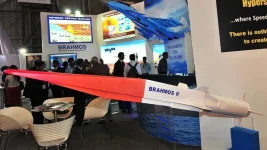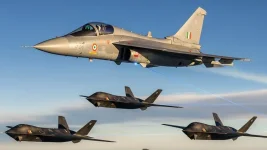- Views: 5K
- Replies: 34

In a move to bolster its defence capabilities and counter regional security threats, India is set to commission a Russian-manufactured Voronezh radar system at the Defence Research and Development Organisation (DRDO) campus in Challakere, Karnataka.
This powerful over-the-horizon radar, with its impressive 6,000 km range, represents a significant upgrade to India's strategic defence infrastructure.
Challakere, once known primarily as India's "Edible Oil City," has transformed into a thriving hub for science and technology. Located approximately three hours from Bengaluru, it houses key establishments like ISRO, DRDO, the Indian Institute of Science (IISc), and the Bhabha Atomic Research Centre (BARC).
This concentration of scientific talent and infrastructure has made Challakere a focal point for advanced research and development in defence and space technology.
The Voronezh radar system is a strategic asset capable of scanning the entirety of Pakistan and deep into Chinese territory, despite being located nearly 1,800 km from India's borders with these neighbours.
Its long-range capabilities enable early detection of ballistic missiles, stealth aircraft, and various other aerial threats, providing India with a crucial advantage in monitoring and responding to potential security challenges.
Operating across various wavebands, the Voronezh radar is versatile and capable of tracking hundreds of targets simultaneously. This provides real-time surveillance over vast areas, significantly enhancing India's missile warning and air defence systems. The installation at Challakere is expected to integrate with India's broader network of radars and sensors, creating a comprehensive air defence shield.
Beyond its military advantages, the project has substantial economic implications. India's agreement with Russia includes significant local manufacturing components, with over 50 Indian enterprises, including startups, participating in producing at least 60% of the radar system. This collaboration aligns with India's "Make in India" initiative, fostering job creation and boosting local defence manufacturing capabilities.
The deployment of the Voronezh radar in southern India sends a clear message about India's commitment to safeguarding its security interests. It also signifies the deepening defence cooperation between India and Russia, even amidst the complexities of international sanctions and geopolitical tensions.
This move is likely to be perceived as a strategic countermeasure by India against the growing missile capabilities of its neighbours, ensuring that India maintains a vigilant and proactive defence posture.


